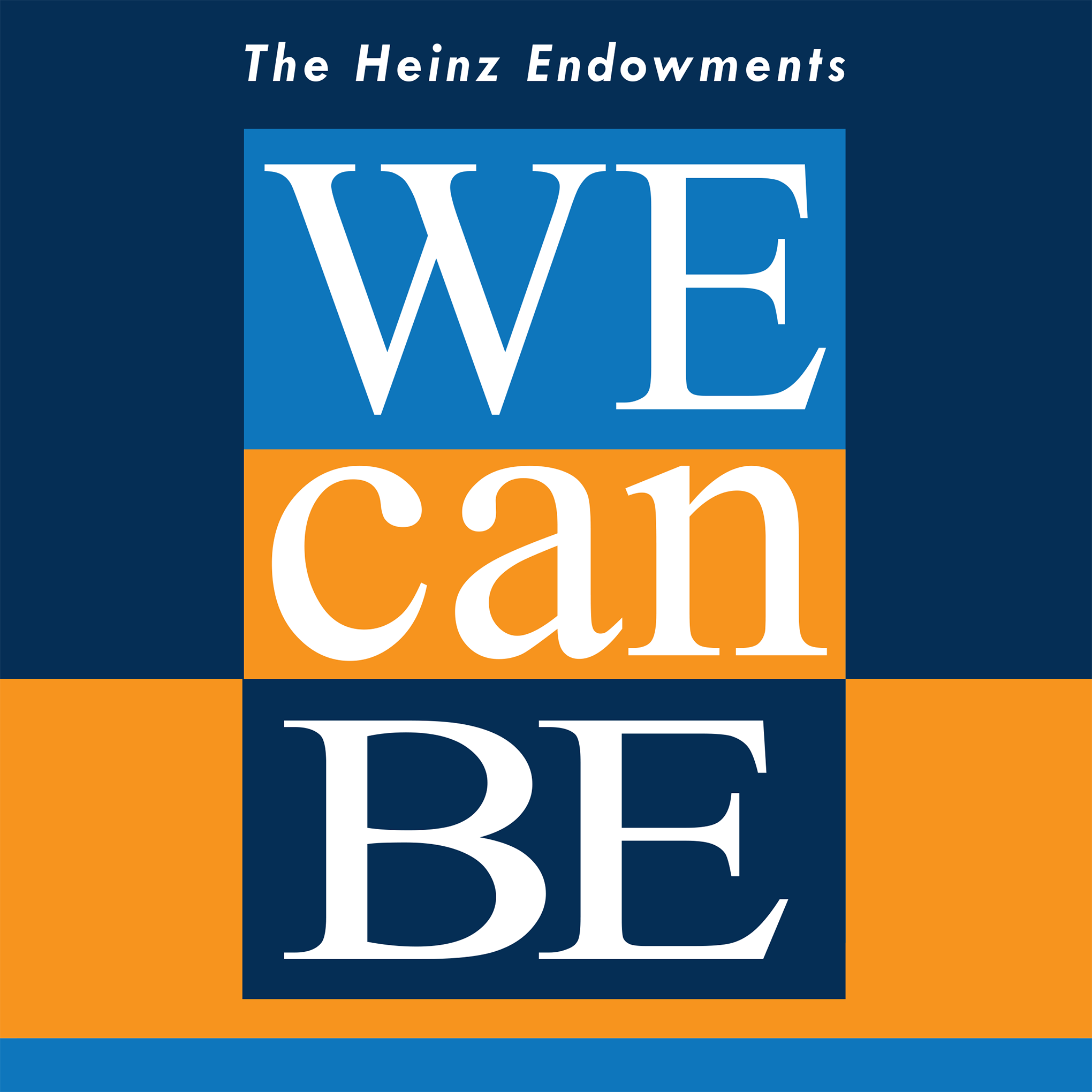
Those working for a more just world share their stories of community and possibility to host - and The Heinz Endowments President - Chris DeCardy. Episodes take you behind the scenes of in-the-news individuals and topics, revealing honesty, humanity and hope at every turn.
Those working for a more just world share their stories of community and possibility to host - and The Heinz Endowments President - Chris DeCardy. Episodes take you behind the scenes of in-the-news individuals and topics, revealing honesty, humanity and hope at every turn.
Episodes
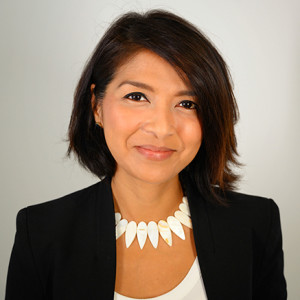
Thursday May 21, 2020
Thursday May 21, 2020
Global Leadership Award winner Leah Lizarondo, founder & CEO of 412 Food Rescue, talks with host Grant Oliphant about what COVID-19 reveals about food insecurity, the “Mister Rogers mentality” that drives the largest volunteer-led food transport network in the nation, and how movie star Michael Keaton has helped spur record volunteer involvement during the current crisis.
Melding technology, logistics and civic engagement to fight hunger and promote sustainability, 412 Food Rescue has become the fastest-growing food recovery entity in the country, diverting more than 10 million pounds of perfectly good food from waste to organizations that help those who are food insecure.
Born in the Philippines and currently residing in Pittsburgh, Pennsylvania, Leah earned her master’s degree in public policy from Carnegie Mellon University, where she holds the position of Entrepreneur in Residence. Leah and 412 Food Rescue have been featured in media pieces by NPR, Fast Company, Martha Stewart Living, and The Washington Post.
In addition to a 2020 Global Leadership Award from Vital Voices, an honor whose past winners include Hillary Rodham Clinton, Melinda Gates and Malala Yousafzai, Leah has received a 2019 WE Empower UN SDG Challenge award, given annually to five women from around the world who are advancing the United Nation’s sustainable development goals.
We’ll be back later this year with the debut of Season 3 of “We Can Be,” but in the meantime, join host Grant Oliphant for “Stronger than This,” a special podcast series of candid conversations about COVID-19. You’ll hear from those on the front lines of the coronavirus pandemic as they share first-hand experiences, challenges, victories, and what they see for the long road ahead. Recorded remotely — with a quick turnaround time from recording to release and minimal editing — these episodes give a unique, unvarnished opportunity for deeper insight into the current crisis.
The “Stronger than This” series is hosted by Heinz Endowments President Grant Oliphant, and produced by the Endowments and Treehouse Media. Theme music by Josh Slifkin. Guest image courtesy of Vital Voices. Guest inquiries can be made to Scott Roller at sroller@heinz.org.
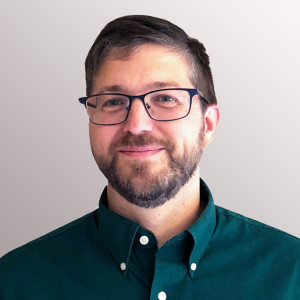
Thursday May 07, 2020
Thursday May 07, 2020
Dr. John Graham, a senior scientist with the Clean Air Task Force, talks with host Grant Oliphant about the effects COVID-19 is having on the air we breathe, why this is an “exceptional moment” for air quality, and what the current “war on expertise” could mean for our future.
A San Francisco Bay Area resident, John grew up in the rural dairy farm community of Glenn Falls, New York, and holds a doctorate in atmospheric science from the Massachusetts Institute of Technology and a bachelor’s in chemistry from Harvard University.
A nationally respected expert in air quality data analysis, he has been with Boston-based Clean Air Task Force for more than a decade, working with his colleagues to help prevent catastrophic climate change by driving technology innovation, policy change, and realistic solutions.
We’ll be back later this year with the debut of Season 3 of “We Can Be,” but in the meantime, join host Grant Oliphant for “Stronger than This,” a special podcast series of candid conversations about COVID-19. You’ll hear from those on the front lines of the coronavirus pandemic as they share first-hand experiences, challenges, victories, and what they see for the long road ahead. Recorded remotely — with a quick turnaround time from recording to release and minimal editing — these episodes give a unique, unvarnished opportunity for deeper insight into the current crisis.
The “Stronger than This” series is hosted by Heinz Endowments President Grant Oliphant, and produced by the Endowments and Treehouse Media. Theme music by Josh Slifkin. Guest inquiries can be made to Scott Roller at sroller@heinz.org.
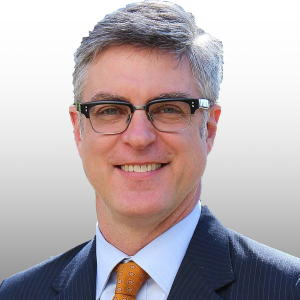
Friday May 01, 2020
Friday May 01, 2020
Patrick Dowd, executive director of Allies for Children, joins host Grant Oliphant to talk about the myriad of ways COVID-19 is affecting our young people, including hunger, access to technology, the health and well-being of their parents, child care – and the action needed to prepare for what’s next.
A bold voice for policy and practice changes that improve the well-being of children, Patrick was raised in Missouri and put down roots in Pittsburgh after earning his doctorate in European history from the University of Pittsburgh.
A teacher for nearly a decade before making the move into the policy world, Patrick served in prominent roles on both Pittsburgh’s school board and City Council. He is a nationally respected expert in the education realm, a role that comes naturally to this father of six.
We’ll be back later this year with the debut of Season 3 of “We Can Be,” but in the meantime, join host Grant Oliphant for “Stronger than This,” a special podcast series of candid conversations about COVID-19. You’ll hear from those on the front lines of the coronavirus pandemic as they share first-hand experiences, challenges, victories, and what they see for the long road ahead. Recorded remotely — with a quick turnaround time from recording to release and minimal editing — these episodes give a unique, unvarnished opportunity for deeper insight into the current crisis.
The “Stronger than This” series is hosted by Heinz Endowments President Grant Oliphant, and produced by the Endowments and Treehouse Media. Theme and incidental music by Josh Slifkin. Guest inquiries can be made to Scott Roller at sroller@heinz.org
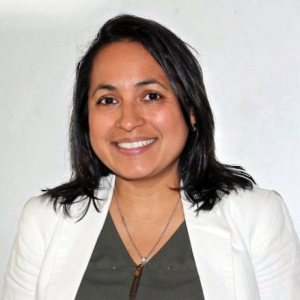
Friday Apr 24, 2020
Friday Apr 24, 2020
Monica Ruiz, executive director of Latino advocacy entity Casa San Jose, joins host Grant Oliphant to talk about the unique ways COVID-19 is affecting immigrant and refugee communities, why the census is key to changing the narrative around Latinos, and the teachable moments that the current crisis offers us.
Born in Cleveland Ohio and with family roots in Guatemala and Puerto Rico, where her parents are originally from, Monica has a master’s degree in social work with a focus on community organizing and social action. She fights for those facing deportation proceedings, and brings compassion and expertise to projects that help women, children and youth. In 2019, she received both the Women of Influence Award from the Pittsburgh Business Times, and the César Chávez Community Heroes Award.
We’ll be back later this year with the debut of Season 3 of “We Can Be,” but in the meantime, join host Grant Oliphant for “Stronger than This,” a special podcast series of candid conversations about COVID-19. With several new episodes each week, you’ll hear from those on the front lines of the coronavirus pandemic as they share first-hand experiences, challenges, victories, and what they see for the long road ahead. Recorded remotely — with a quick turnaround time from recording to release and minimal editing — these episodes give a unique, unvarnished opportunity for deeper insight into the current crisis.
The “Stronger than This” series is hosted by Heinz Endowments President Grant Oliphant, and produced by the Endowments and Treehouse Media. Theme and incidental music by Josh Slifkin. Guest image by Josh Franzos. Guest inquiries can be made to Scott Roller at sroller@heinz.org.
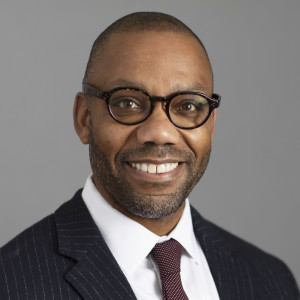
Wednesday Apr 22, 2020
Wednesday Apr 22, 2020
Brookings Institution scholar and author Dr. Andre Perry joins host Grant Oliphant to talk about the moral lessons we can learn from the COVID-19 crisis, why black and brown people are dying from the virus at a vastly disproportionate rate, and why hearing from his son’s teacher gives him hope.
Andre is an internationally acclaimed voice on race and equity. He is a columnist for The Hechinger Report, a nonprofit news organization that specializes in in-depth education reporting, and his writing also regularly appears in The Nation, The New York Times and The Washington Post. His upcoming book is titled “Know Your Price: Valuing Black Lives and Property in America’s Black Cities” (Brookings Institution Press, May 19, 2020).
We’ll be back later this year with the debut of Season 3 of “We Can Be,” but in the meantime, join host Grant Oliphant for “Stronger than This,” a special podcast series of candid conversations about COVID-19. With several new episodes each week, you’ll hear from those on the front lines of the coronavirus pandemic as they share first-hand experiences, challenges, victories, and what they see for the long road ahead. Recorded remotely — with a quick turnaround time from recording to release and minimal editing — these episodes give a unique, unvarnished opportunity for deeper insight into the current crisis.
The “Stronger than This” series is hosted by Heinz Endowments President Grant Oliphant, and produced by the Endowments and Treehouse Media. Theme and incidental music by Josh Slifkin. Guest image by Josh Franzos. Guest inquiries can be made to Scott Roller at sroller@heinz.org.
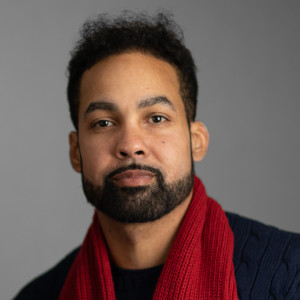
Friday Apr 17, 2020
Friday Apr 17, 2020
Artist/activist Jasiri X, co-founder/CEO of 1Hood Media, joins host Grant Oliphant to talk about the role of art in times of crisis, why COVID-19 lays bare a historic distrust of the medical system by people of color, & the reality that many who are deemed “essential workers” do not make a living wage.
Jasiri X is leading 1Hood Media — a collective of socially conscious artists and activists who use art as a means of raising awareness about social justice issues — in its response to the COVID-19 crisis. He is the recipient of an “Artist as Activist” fellowship at the Robert Rauschenberg Foundation, and an honorary Doctorate of Letters from Chicago Theological Seminary, where the Rev. Dr. Martin Luther King, Jr. also received an honorary doctorate.
We’ll be back later this year with the debut of Season 3 of “We Can Be,” but in the meantime, join host Grant Oliphant for “Stronger than This,” a special podcast series of candid conversations about COVID-19. With new episodes each week, you’ll hear from those on the front lines of the coronavirus pandemic as they share first-hand experiences, challenges, victories, and what they see for the long road ahead. Recorded remotely and within social distancing guidelines — with a quick turnaround time from recording to release and minimal editing — these episodes give a unique, unvarnished opportunity for deeper insight into the current crisis.
The “Stronger than This” special series is hosted by Heinz Endowments President Grant Oliphant, and produced by the Endowments and Treehouse Media. Theme music by Josh Slifkin. Guest image by Joshua Franzos. Guest inquiries can be made to Scott Roller at sroller@heinz.org
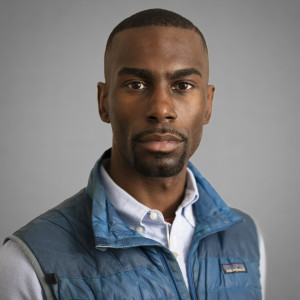
Wednesday Nov 13, 2019
Civil rights activist DeRay Mckesson: “Protest is speaking the truth out loud.” S02EP20
Wednesday Nov 13, 2019
Wednesday Nov 13, 2019
DeRay Mckesson and his instantly recognizable blue down vest have become synonymous with advocacy for victims of police violence and an end to mass incarceration.
A civil rights activist, community organizer and former middle school teacher, DeRay came to national prominence as a leading voice in the Black Lives Matter Movement when he documented – and participated in – protests following the deaths of unarmed black men by police or in police custody in Ferguson, Missouri, and Baltimore, Maryland.
With his one million twitter followers, a best-selling book (“On the Other Side of Freedom: The Case for Hope” on Penguin Random House), and his hit podcast “Pod Save the People,” DeRay, who also is co-founder of the police reform initiative Campaign Zero, is creating space for conversation and action. He has harnessed the power of both traditional and digital media in enormously effective ways.
“Protest is speaking the truth out loud,” DeRay tells “We Can Be” host Grant Oliphant. “The inconvenience that you feel sitting in traffic while protesters march is just a slice of the pain that a mother feels because she’ll never see her loved one again.”
DeRay shares the funny moment when his younger self first realized white people could be wrong, his experience as an out gay man in the civil rights movement, what the X-Men’s Storm imprinted on him, and the easily confused – but consequential - differences between justice and accountability.
“We are fighting for a world that we have not yet seen, but that we believe is possible,” DeRay says. “And I will never be afraid to tell the truth.”
Listen today at heinz.org/podcast, or on leading podcast sites including Stitcher, Podbean, GooglePlay, iTunes and Spotify.
“We Can Be” is hosted by Heinz Endowments President Grant Oliphant, and produced by the Endowments and Treehouse Media. Theme and incidental music by Josh Slifkin. Guest image by Josh Franzos. Guest inquiries can be made to Scott Roller at sroller@heinz.org.

Wednesday Nov 06, 2019
Wednesday Nov 06, 2019
Dr. Andre Perry of The Brookings Institution has made exploration of race and structural inequality – especially as it affects education and economic inclusion – his life’s work.
A Pittsburgh native born into a challenging family environment, Andre learned early the importance of community, school and neighborly kindness in guiding youth like him toward realizing their full potential. A high school track and cross-country star, he says he used to run from the trouble that surrounded him growing up, but “now instead of running away from problems, I run toward them.”
Indeed, today Andre is an internationally acclaimed voice on race and equity. He is a columnist for The Hechinger Report, a nonprofit news organization that specializes in in-depth education reporting, and his writing also regularly appears in The Nation, The New York Times and The Washington Post. His upcoming book is titled “Know Your Price: Valuing Black Lives and Property in America’s Black Cities” (Brookings Institution Press, May 19, 2020).
Andre is particularly gifted at giving both the information and inspiration that individuals need to realize their true value. Drawing on his love for the late playwright August Wilson’s “Two Trains Running,” he says: “Know your worth and what you stand for. Know your price.”
In this episode, Andre speaks with host Grant Oliphant about inequitable development (“growth without inclusion is suppression”), the hard truth he brought to a twitter war between President Donald Trump and hip-hop megastar Jay-Z, and why his time with children of migrants became the most significant, career-shaping experience of his life.
Get both information and inspiration from Dr. Andre Perry in this episode of The Heinz Endowments’ “We Can Be” podcast.
Listen today at heinz.org/podcast, or on leading podcast sites including Stitcher, Podbean, GooglePlay, iTunes and Spotify.
“We Can Be” is hosted by Heinz Endowments President Grant Oliphant, and produced by the Endowments and Treehouse Media. Theme and incidental music by Josh Slifkin. Guest image by Josh Franzos. Guest inquiries can be made to Scott Roller at sroller@heinz.org.
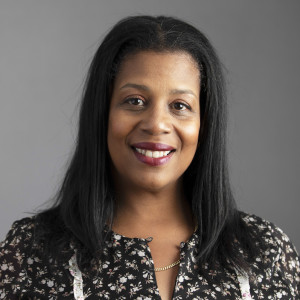
Wednesday Oct 30, 2019
Outdoor Afro founder Rue Mapp: "Nature is a refuge from all the '-isms'" S02EP18
Wednesday Oct 30, 2019
Wednesday Oct 30, 2019
Rue Mapp founded Outdoor Afro, a “social media community that introduces African Americans to the Great Outdoors” because she remembers the exhilaration she felt as a child in the run from the car to the creek when her parents pulled into the driveway of the family’s ranch in the Northern California woodlands.
“I want everyone to have that opportunity to feel that rush of joy and sense of belonging in nature.”
Started as a blog in 2009, Outdoor Afro quickly gained national attention, spreading across the country and garnering national attention and garnering media profiles of Rue on CNN and NPR, and in The Wall Street Journal, National Geographic, and – proving that she has definitely captured the zeitgeist – Oprah Magazine.
The success of Outdoor Afro gained Rue a seat in the organization of Michelle Obama’s “Let’s Move” initiative; a National Wildlife Federation’s Communication Award; and a 2019 Heinz Award in the environment category.
Host Grant Oliphant and Rue talk about the deeply rooted trauma that causes many African Americans to have an unconscious wariness of outdoor spaces; the time she says she “opened my mouth, and my life fell out;” and who she considers the “original outdoor afro.”
“Nature doesn’t judge anyone,” says Rue. “The outdoors is a refuge from all the ‘isms.’”
Experience the charismatic, thoughtful, joyful and – considering her infectious love of parks, trails and nature – appropriately named Rue Mapp on this episode of “We Can Be.”
Listen today at heinz.org/podcast, or on leading podcast sites including Stitcher, Podbean, GooglePlay, iTunes and Spotify.
“We Can Be” is hosted by Heinz Endowments President Grant Oliphant, and produced by the Endowments and Treehouse Media. Theme and incidental music by Josh Slifkin. Guest image by Josh Franzos. Guest inquiries can be made to Scott Roller at sroller@heinz.org.
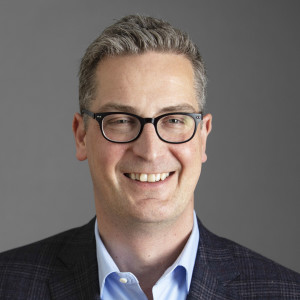
Wednesday Oct 23, 2019
The joy & complexity of giving w/ Giving Done Right author Phil Buchanan S02EP17
Wednesday Oct 23, 2019
Wednesday Oct 23, 2019
In 2018, Americans gave $427 billion to charities of their choice. Phil Buchanan, founding chief executive of The Center for Effective Philanthropy and author of “Giving Done Right: Effective Philanthropy and Making Every Dollar Count,” is working to make certain people have the best possible information to ensure those hard-earned dollars do the most possible good.
Phil has his father to thank for his sense of empathy, and his urge to give where it can be most impactful. An ardent social justice and worker’s rights activist, Phil’s father “sought to build relationships with people whose lives and experiences were vastly different from his, all in effort to understand them and create genuine connections.”
Those lessons became a cornerstone of Phil’s being, driving him to found The Center for Effective Philanthropy in 2001 and continue to serve as its president ever since. The center does research for many of the most-recognized names in the giving community, including Ford, Hewlett, MacArthur, Packard, and The Heinz Endowments. His on-the-ground experience culminated in his 2019 book “Giving Done Right.”
Host Grant Oliphant’s conversation with Phil covers the “heart-versus-head conundrum” about giving that both individuals and philanthropies must wrestle with, the dangers of taking tainted money from donors with dubious – or worse – reputations, and why America’s nonprofit leaders are “our country’s unsung heroes.”
“We need to encourage givers to do their giving in a way that is not top down, that is not just about the pursuit of their own priorities,” Phil says. “Rather, give in ways that elevate the voices and opportunities of the most vulnerable.”
Phil has done his father proud. Hear why on this episode of “We Can Be.”
Listen today at heinz.org/podcast, or on leading podcast sites including Stitcher, Podbean, GooglePlay, iTunes and Spotify.
“We Can Be” is hosted by Heinz Endowments President Grant Oliphant, and produced by the Endowments and Treehouse Media. Theme and incidental music by Josh Slifkin. Guest image by Josh Franzos. Guest inquiries can be made to Scott Roller at sroller@heinz.org.
